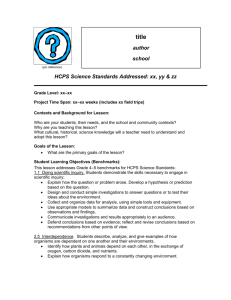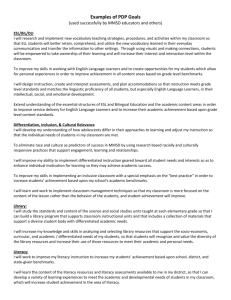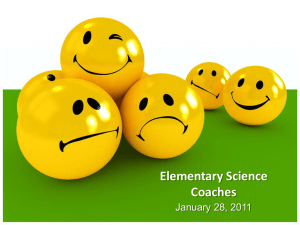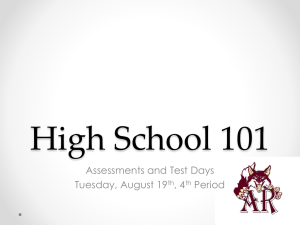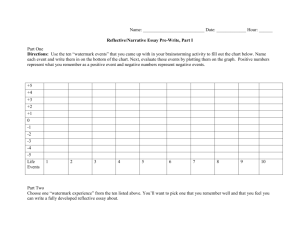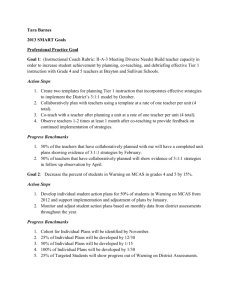Writing Quality Assessment Items
advertisement
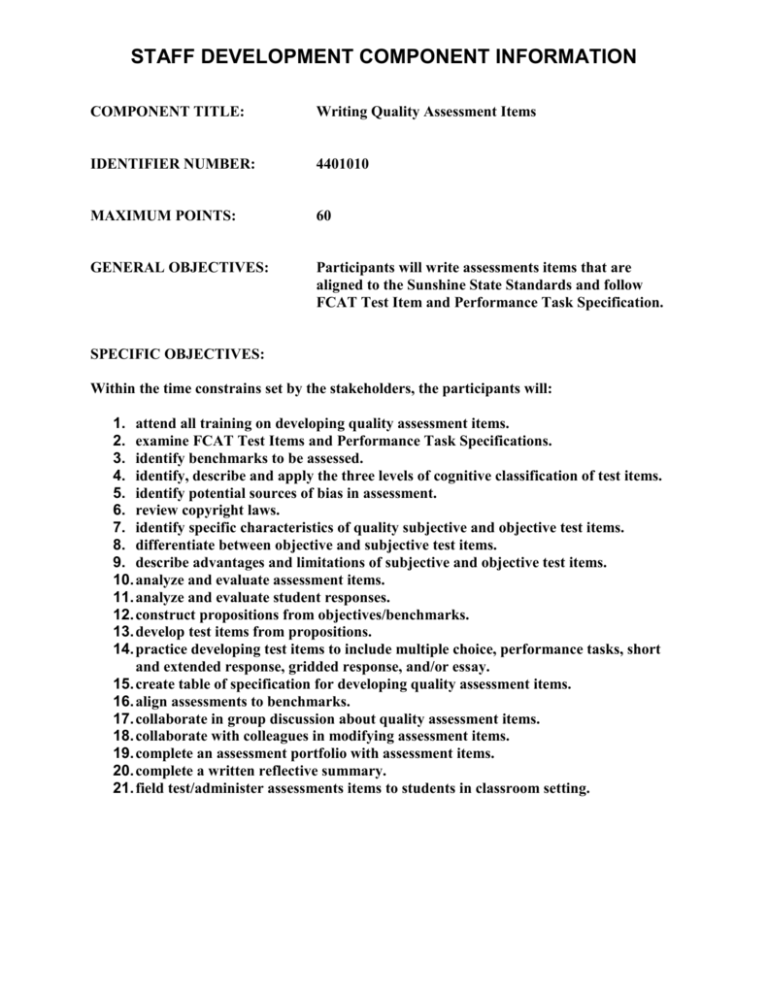
STAFF DEVELOPMENT COMPONENT INFORMATION COMPONENT TITLE: Writing Quality Assessment Items IDENTIFIER NUMBER: 4401010 MAXIMUM POINTS: 60 GENERAL OBJECTIVES: Participants will write assessments items that are aligned to the Sunshine State Standards and follow FCAT Test Item and Performance Task Specification. SPECIFIC OBJECTIVES: Within the time constrains set by the stakeholders, the participants will: 1. attend all training on developing quality assessment items. 2. examine FCAT Test Items and Performance Task Specifications. 3. identify benchmarks to be assessed. 4. identify, describe and apply the three levels of cognitive classification of test items. 5. identify potential sources of bias in assessment. 6. review copyright laws. 7. identify specific characteristics of quality subjective and objective test items. 8. differentiate between objective and subjective test items. 9. describe advantages and limitations of subjective and objective test items. 10. analyze and evaluate assessment items. 11. analyze and evaluate student responses. 12. construct propositions from objectives/benchmarks. 13. develop test items from propositions. 14. practice developing test items to include multiple choice, performance tasks, short and extended response, gridded response, and/or essay. 15. create table of specification for developing quality assessment items. 16. align assessments to benchmarks. 17. collaborate in group discussion about quality assessment items. 18. collaborate with colleagues in modifying assessment items. 19. complete an assessment portfolio with assessment items. 20. complete a written reflective summary. 21. field test/administer assessments items to students in classroom setting. PROCEDURES: Participants will: 1. actively participate in assessment training. 2. explore FCAT Test Items and Performance Task Specifications. 3. evaluate sample assessment items. 4. analyze the three levels of cognitive classification in FCAT test items. 5. create cognitive leveled questions template that is aligned to benchmarks. 6. discuss assessment bias. 7. discuss copyright laws as they pertain to assessment items. 8. discuss characteristics of subjective and objective items. 9. examine advantages and limitations of subjective and objective test items. 10. analyze and evaluate assessment items. 11. identify quality assessment items. 12. practice aligning assessments to benchmarks. 13. identify benchmarks assessed by FCAT. 14. determine and develop propositions from objectives/benchmarks. 15. construct propositions from objectives/benchmarks. 16. develop test items from propositions. 17. practice developing test items to include multiple choice, performance tasks, short and extended response, gridded response, and essay 18. develop table of specification to plan quality assessment items. 19. collaborate in group discussion about quality assessment items. 20. develop assessment items. 21. field test assessment items. 22. analyze and evaluate participants’ assessment items. 23. analyze field test results. EVALUATION OF PARTICIPANTS: Participants will: 1. demonstrate knowledge of at least 80% of the targeted objectives on a post assessment. 2. submit an assessment portfolio with a written reflective summary complete with sample assessments. 3. attend all workshop sessions (100% participation). 4. develop quality assessment items (100%) as outlined in training syllabus. FOLLOW-UP ACTIVITIES: Participants will: 1. develop original assessment items to include, but not limited to multiple choice, short response, extended response, gridded response and/or essay. 2. participate in oral/written reflections. 3. complete and submit a reflective summary of impact on job performance or student achievement. 4. submit an assessment portfolio with a written reflective summary complete with assessment items. MAINTENANCE ACTIVITIES: Participants will periodically 1. 2. 3. 4. participate in group discussion about quality assessments. collaborate in group development of quality assessments. conduct and share research findings. share reflective logs. COMPONENT EVALUATION: Participants will assess the degree to which the professional development procedures addressed the specific objectives of the component, and will make recommendations for revisions through the evaluation instrument.

